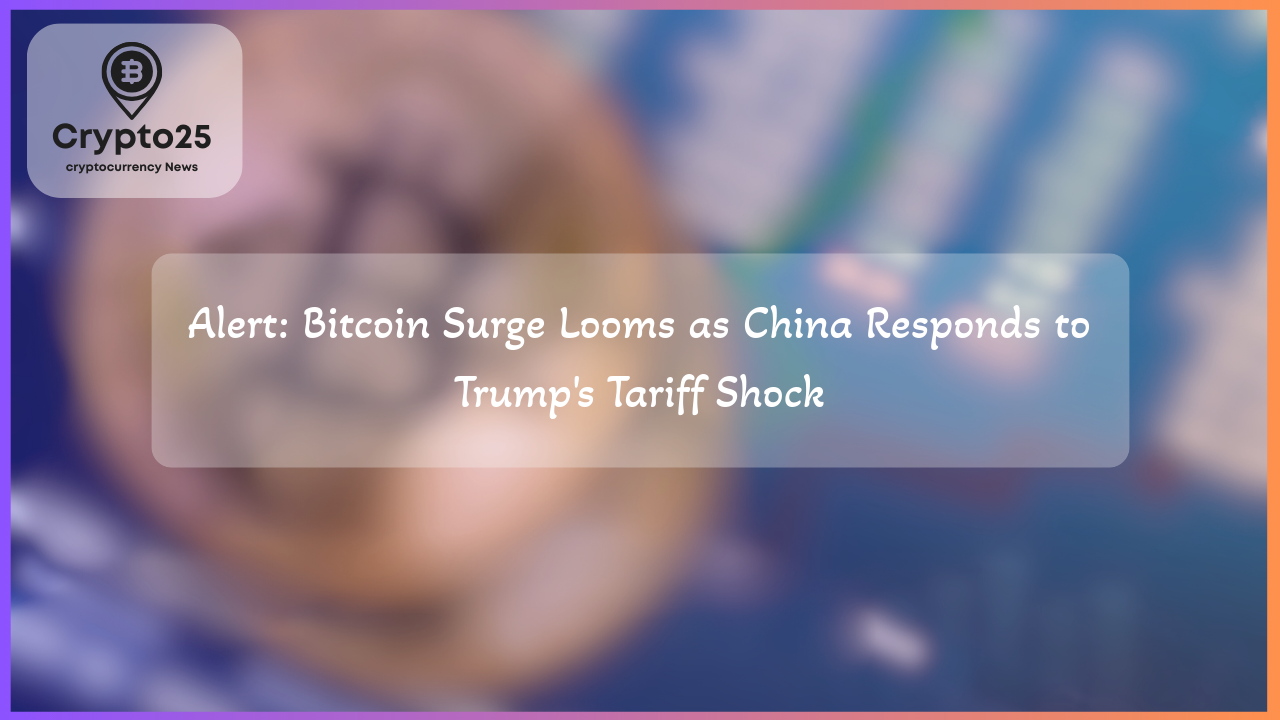
Rising geopolitical uncertainties often pave the way for significant shifts in the crypto market, with Bitcoin historically serving as a hedge against economic instability. As tensions between the U.S. and China intensify, market analysts are drawing parallels to previous scenarios where Bitcoin thrived amidst global unrest. Let’s explore how current developments could shape Bitcoin’s performance in the coming months, especially against the backdrop of ongoing trade disputes.
## How U.S.-China Tensions May Impact Bitcoin Prices
The escalating trade war between the United States and China is once again threatening to disrupt global markets. While Washington pushes for increased tariffs on Chinese goods, Beijing’s firm retaliation has created a volatile economic environment. Historically, Bitcoin has shown resilience in such periods, often regarded as “digital gold” due to its ability to weather geopolitical instability.
A notable comparison can be made to 2015, when the Chinese yuan (RMB) faced devaluation. During that period, Bitcoin initially dipped, coinciding with market uncertainty. However, the cryptocurrency later rebounded strongly by year-end, marking a turning point for its growing role as a financial safe haven. Analysts at Matrixport, a Singapore-based blockchain and crypto research firm, believe we may witness a similar rally fueled by the pressures on the Chinese yuan today.
### Bitcoin and the Weakening Chinese Yuan: A Historic Pattern
Matrixport’s recent market analysis draws attention to the USD/CNY exchange rate, currently nearing critical resistance levels. As the yuan weakens under growing economic strain, Bitcoin could be poised to rise sharply. In their latest report, Matrixport analysts highlighted how previous geopolitical scenarios presented the perfect environment for Bitcoin to thrive as a hedge against inflation and currency volatility.
Table summarizing Bitcoin’s historical performance during yuan devaluation:
| Event | Impact on Bitcoin |
|---|---|
| 2015 Yuan Devaluation | Initial drop followed by a strong rebound in Bitcoin prices |
| 2017 Trade Tensions | Increased interest in Bitcoin due to market uncertainty |
The current economic climate mirrors these prior periods. With the yuan under pressure from U.S. tariff policies, and a correlation between devaluation concerns and Bitcoin’s appeal emerging, investors are likely to turn toward cryptocurrencies as a safeguard against economic instability.
## Could Bitcoin Rally Amid Ongoing Economic Turmoil?
Geopolitical standoffs often amplify uncertainties surrounding traditional financial markets. This is particularly evident in the ongoing U.S.-China trade dispute, where both sides are refusing to concede ground. China’s commitment to “fight to the end” in response to President Donald Trump’s proposed tariffs signals the possibility of prolonged economic turbulence. In turn, this creates an opportunity for cryptocurrencies like Bitcoin to prove their resilience.
Matrixport analysts contend that Bitcoin’s historical performance during periods of market volatility provides reasons to remain optimistic. Despite short-term concerns tied to rising U.S. Treasury yields and regulatory crackdowns, Bitcoin’s role as an inflation-resistant asset continues to attract institutional interest. When traditional markets falter, Bitcoin has often demonstrated anti-correlated behavior, making it an increasingly popular tool for portfolio diversification.
As they noted, “In 2015, following RMB devaluation, Bitcoin initially experienced a sell-off but concluded the year with significant strength.” If current pressure on the yuan persists, Bitcoin may follow a similar trajectory, setting the stage for another bullish cycle.
## The Long-Term Outlook for Bitcoin Amid Market Volatility
The dynamics between global political events and digital assets cannot be understated. With China’s yuan facing bearish sentiment, compounded by heightened tensions with the United States, Bitcoin is uniquely positioned to capture investor interest. Beyond its traditional use as an alternative asset, Bitcoin’s decentralized nature adds to its appeal as a store of value when nations experience economic uncertainty or policy risks.
While short-term price movements may show volatility, many analysts agree that the inherent fundamentals of Bitcoin – global accessibility, limited supply, and resistance to censorship – remain strong drivers for adoption. Increasing demand for decentralized assets amidst currency devaluations and trade wars only reinforces Bitcoin’s role in modern financial systems.
As we watch the U.S.-China economic standoff intensify, savvy investors are likely to allocate higher positions to Bitcoin. Whether as a hedge, a speculative interest, or long-term digital wealth storage, Bitcoin remains a central piece in the evolving global economic puzzle. And as history has shown, volatility may not be a drawback but rather the launchpad for Bitcoin’s next significant breakout.
